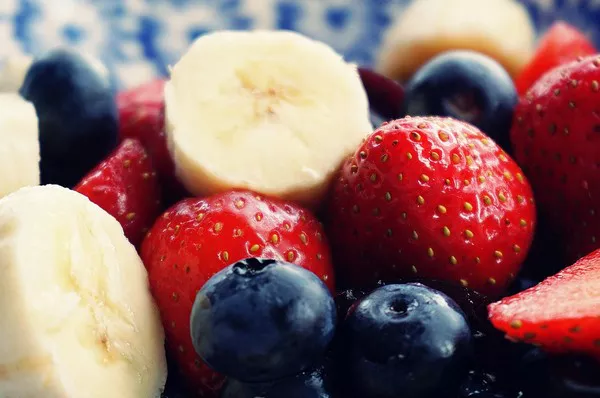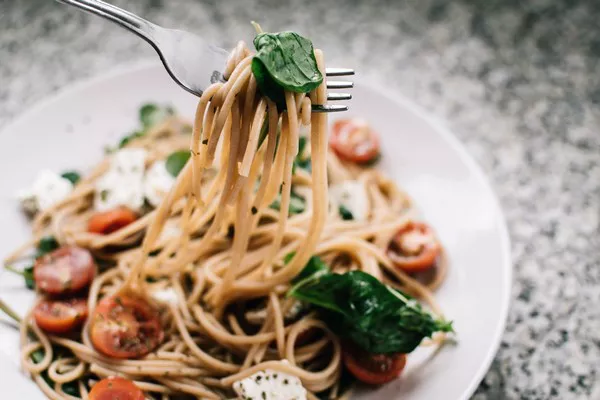Vitamin C, also known as ascorbic acid, is a vital nutrient that plays a significant role in maintaining good health. It is an essential water-soluble vitamin that cannot be produced by the human body and must be obtained through dietary sources. Fruits are one of the richest natural sources of vitamin C, offering a diverse range of health benefits. In this article, we will explore the importance of vitamin C, its role in the human body, and the various fruits from which we can obtain this essential nutrient.
1. The Importance of Vitamin C
Vitamin C is renowned for its potent antioxidant properties, which help protect cells from oxidative stress caused by free radicals. By neutralizing these free radicals, vitamin C helps reduce the risk of chronic diseases such as heart disease, diabetes, and certain types of cancer. Additionally, vitamin C supports a healthy immune system by enhancing the production and function of white blood cells, which play a vital role in fighting infections.
Moreover, vitamin C is crucial for collagen synthesis, a protein that supports the structure and integrity of connective tissues, skin, bones, and blood vessels. It also aids in the absorption of non-heme iron, which is particularly beneficial for individuals following a plant-based diet.
2. Vitamin C Content in Fruits
Fruits are excellent sources of vitamin C, and incorporating them into your daily diet can help you meet your recommended daily intake. Below are some popular fruits and their approximate vitamin C content per 100 grams:
Oranges (Citrus sinensis): Oranges are iconic for their high vitamin C content, providing around 53 mg per 100 grams. They are not only delicious but also versatile, making them an easy addition to your daily intake.
Kiwi (Actinidia deliciosa): Kiwis are incredibly rich in vitamin C, containing about 92 mg per 100 grams. These small, green fruits also offer dietary fiber, vitamin K, and antioxidants.
Strawberries (Fragaria x ananassa): Strawberries are a delightful source of vitamin C, with approximately 59 mg per 100 grams. They are low in calories and packed with other essential nutrients like manganese and folate.
Guava (Psidium guajava): Guavas boast an impressive vitamin C content of approximately 228 mg per 100 grams. Eating this tropical fruit can also provide you with a healthy dose of dietary fiber and vitamin A.
Papaya (Carica papaya): Papayas are known for their digestive enzymes and high vitamin C content of around 62 mg per 100 grams. They are also rich in vitamin A, potassium, and folate.
Pineapple (Ananas comosus): Pineapples offer approximately 47 mg of vitamin C per 100 grams. They are a delightful tropical addition to your diet, providing manganese and bromelain, an enzyme with anti-inflammatory properties.
Mango (Mangifera indica): Mangos contain about 36 mg of vitamin C per 100 grams. Apart from being delicious, they are an abundant source of vitamin A, vitamin E, and fiber.
Kiwi (Actinidia deliciosa): Kiwis are incredibly rich in vitamin C, containing about 92 mg per 100 grams. These small, green fruits also offer dietary fiber, vitamin K, and antioxidants.
Lemons (Citrus limon): Lemons provide around 53 mg of vitamin C per 100 grams. Although their high acidity may limit direct consumption, they are a versatile ingredient in various culinary applications.
Blackberries (Rubus fruticosus): Blackberries offer approximately 21 mg of vitamin C per 100 grams. These dark purple berries are also rich in dietary fiber, manganese, and vitamin K.
3. Lesser-Known Fruits High in Vitamin C
There are several lesser-known fruits that are surprisingly high in vitamin C. While popular fruits like oranges and strawberries often take the spotlight for their vitamin C content, these lesser-known fruits can be equally beneficial in boosting your intake of this essential nutrient. Let’s explore some of these vitamin C-rich, lesser-known fruits:
Acerola Cherry (Malpighia emarginata): Also known as Barbados cherry or West Indian cherry, acerola cherry is an incredibly potent source of vitamin C. In fact, it contains one of the highest concentrations of vitamin C among all fruits. A single acerola cherry can provide up to 40-65 mg of vitamin C. Due to its high vitamin C content, acerola cherry is often used to make supplements and fortified beverages.
Camu Camu (Myrciaria dubia): Native to the Amazon rainforest, camu camu is a small, sour fruit that packs a powerful vitamin C punch. It is considered one of the richest sources of vitamin C, with some varieties containing up to 3,000 mg of vitamin C per 100 grams. However, the exact vitamin C content can vary depending on the fruit’s ripeness and growing conditions.
Indian Gooseberry (Emblica officinalis): Also known as amla, Indian gooseberry is a revered fruit in traditional Ayurvedic medicine. It is rich in vitamin C and offers numerous health benefits. A single Indian gooseberry can contain up to 600-900 mg of vitamin C, making it a potent source of this essential nutrient.
Rose Hips (Rosa spp.): Rose hips are the fruit of the wild rose plant and are abundant in vitamin C. They have been used for centuries as a natural remedy for various ailments. The vitamin C content in rose hips can range from 100-2000 mg per 100 grams, depending on the rose species and growing conditions.
Kakadu Plum (Terminalia ferdinandiana): Native to Australia, the kakadu plum is another vitamin C powerhouse. It contains around 1000-5300 mg of vitamin C per 100 grams, making it one of the most concentrated sources of this nutrient in the world.
Sea Buckthorn (Hippophae rhamnoides): Sea buckthorn is a small, orange berry that thrives in harsh climates. It is packed with nutrients, including vitamin C. Depending on the variety and growing conditions, sea buckthorn can contain approximately 200-900 mg of vitamin C per 100 grams.
Goji Berries (Lycium barbarum): Goji berries, also known as wolfberries, have gained popularity in recent years for their antioxidant-rich properties. They are also a good source of vitamin C, providing around 48 mg per 100 grams.
Black Currants (Ribes nigrum): Black currants are dark purple berries with a tangy flavor. They are rich in vitamin C, offering approximately 181 mg per 100 grams.
Golden Kiwi (Actinidia chinensis): While the golden kiwi is a lesser-known variety compared to the green kiwi, it is equally rich in vitamin C. It can provide up to 92 mg of vitamin C per 100 grams.
4. Delicious Ways to Incorporate Vitamin C into Diet
Incorporating vitamin C-rich fruits into your diet can be both delicious and refreshing. Here are some creative and enjoyable ways to enjoy these fruits while boosting your vitamin C intake:
Fresh Fruit Salad: Create a vibrant and colorful fruit salad using a mix of vitamin C-rich fruits like oranges, kiwis, strawberries, mangoes, and pineapples. Drizzle some honey or a squeeze of lime juice for added flavor.
Smoothies: Blend together your favorite vitamin C-rich fruits with yogurt or plant-based milk for a delightful and nutritious smoothie. Try combinations like strawberry-banana, mango-pineapple, or mixed berry for a burst of flavor.
Fruit Skewers: Thread vitamin C-rich fruits onto wooden skewers for a fun and visually appealing snack. You can also serve them with a yogurt dip for added creaminess.
Citrus Infused Water: Add slices of citrus fruits like lemons, limes, or oranges to a pitcher of water for a refreshing and vitamin C-packed drink. You can also add some mint leaves for an extra burst of flavor.
Homemade Fruit Popsicles: Blend vitamin C-rich fruits with some water or fruit juice and pour the mixture into popsicle molds. Freeze them for a healthy and tasty treat on a hot day.
Kiwi Salsa: Prepare a zesty salsa using diced kiwi, tomatoes, onions, cilantro, and a splash of lime juice. It pairs well with grilled chicken, fish, or as a dip with whole-grain tortilla chips.
Tropical Fruit Smoothie Bowl: Top a bowl of yogurt or smoothie with sliced vitamin C-rich fruits like papaya, guava, and mango. Sprinkle some granola, nuts, and coconut flakes for added texture and taste.
Homemade Fruit Sorbet: Blend vitamin C-rich fruits with a little honey or maple syrup and freeze the mixture to create a delicious and healthier version of sorbet.
Orange-Glazed Salmon: Prepare an orange glaze using fresh orange juice, honey, soy sauce, and ginger. Brush it over baked or grilled salmon for a mouthwatering and nutritious meal.
Stuffed Peppers: Dice vitamin C-rich fruits like kiwi, pineapple, or mango, and use them as part of a sweet and savory stuffing for bell peppers. Bake until tender and enjoy this flavorful dish.
Açai Bowls: Top açai bowls with vitamin C-rich fruits like strawberries, blueberries, and kiwis. Add some granola, chia seeds, and coconut flakes for a nutrient-packed breakfast or snack.
Citrus Marinades: Use freshly squeezed citrus juices as a base for marinades when cooking meat, tofu, or vegetables. The acidity adds tanginess and helps tenderize the food.
5. Other Sources of Vitamin C
While fruits are well-known sources of vitamin C, they are not the only options available. Many vegetables, such as bell peppers, broccoli, kale, and tomatoes, also provide substantial amounts of this essential nutrient. Additionally, some fortified food products and dietary supplements may contain vitamin C.
Conclusion
Vitamin C is a crucial nutrient that offers an array of health benefits, from supporting the immune system to promoting collagen synthesis and acting as a powerful antioxidant. Fruits are excellent sources of this essential vitamin, and regularly incorporating them into your diet can contribute significantly to meeting your daily vitamin C requirements. Remember to consume a variety of fruits and be mindful of cooking methods to preserve the nutrient content. By embracing a balanced diet rich in vitamin C, you can enhance your overall well-being and maintain optimal health.
[inline_related_posts title=”Related Topics” title_align=”left” style=”list” number=”3″ align=”none” ids=”804,901,688″ by=”categories” orderby=”rand” order=”DESC” hide_thumb=”no” thumb_right=”no” views=”no” date=”yes” grid_columns=”1″ post_type=”” tax=””]
































